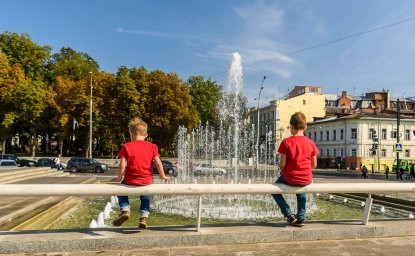The Kennan Institute recently asked some of our scholars to share their top book selections for the 2019 back-to-school season. Here are a few of their picks, ranging from the history of science and religion in Russia to portraits of leading Russian composers and artists.
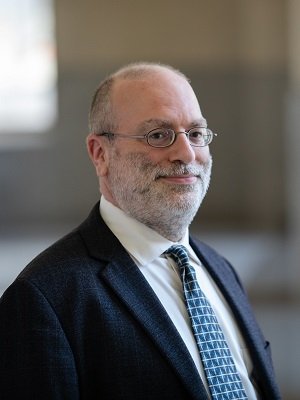
Michael Gordin, Wilson Center Fellow, Kennan Institute
Ivan Pavlov: A Russian Life in Science, by Daniel P. Todes
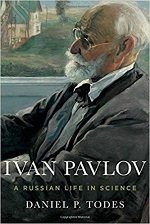
There is no word short of "magisterial" to describe this comprehensive and highly readable biography of one of the most recognizable scientific names in the world. It's a very large book, but then Pavlov lived a very full life. Aside from his physiological experiments on dogs — starting with digestion, which garnered him the Nobel Prize in Physiology or Medicine in 1904, and culminating in his most famous research on conditional reflexes — Pavlov's life spanned one of the most tumultuous periods of Russian history. Born in 1849, he began his career as a seminary student before turning to science, and he died in 1936, having weathered the Great War, the Russian Revolution, and the onset of Stalinism (despite his refusal to suppress his anti-Bolshevik views). Todes expertly weaves the science and the politics together with an intimate portrayal of this multi-faceted persona.
A Sacred Space Is Never Empty: A History of Soviet Atheism, by Victoria Smolkin
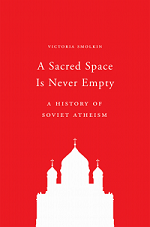
There are almost no histories of the Soviet social sciences, and in this book Smolkin provides a gripping account of the most Soviet of social sciences: scientific atheism. A common epithet for Communists during the heady days of Red-baiting was "godless," and there has long been a healthy interest among historians about the early days of the Soviet regime when campaigns against religion were at their height. Smolkin's approach is rather different, concentrating on efforts in the late Khrushchev and Brezhnev eras to both understand and counter the persistence of religious belief in the Soviet Union despite decades of official discouragement. It is a story that includes mobilized cosmonauts studying the Bible to better refute it, the invention of secular rituals, earnest science popularization, and an eventual surrender in
the face of faith's endurance.
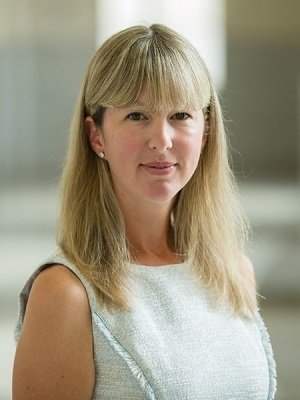
Natalie Rouland, Senior Advisor, Kennan Institute
The Tchaikovsky Papers: Unlocking the Family Archive, edited by Marina Kostalevksy and translated by Stephen Pearl

This book is a must-read for music lovers, cultural savants, and Slavic scholars. For the first time in English, this seminal volume presents letters from Pyotr Ilyich Tchaikovsky, his family, and friends that provide an intimate portrait of the most celebrated Russian composer of the modern era. While Tchaikovsky’s musical legacy endures, aspects of his personal life remain up for debate, not least his 1893 death by cholera, the official cause, or suicide, the sensational theory propagated by Soviet émigré musicologist Aleksandra Orlova. Bard College Associate Professor Marina Kostalevsky and award-winning translator Stephen Pearl have adroitly adapted the landmark Russian compendium of Polina Vaidman, the late Senior Curator of the Tchaikovsky State House-Museum in Klin. The letters and archival documents, previously prevented from publication, illuminate components of Tchaikovsky’s biography, including his Russian Orthodoxy, his patriotic allegiance to Alexander III, and his homosexuality, that were controversial in the Soviet period and deserve renewed investigation today.
Rudolf Nureyev: The Life, by Julie Kavanagh

Meet Rudik, Soviet defector, gay icon, and the greatest danseur of his generation. Julie Kavanagh’s comprehensive biography of Nureyev met with critical and popular acclaim in 2007 and served as the basis for Ralph Fiennes’s 2018 film The White Crow, which premiered at U.S. theatres this summer. The author takes readers on a journey from Nureyev’s 1938 birth on a Trans-Siberian train through his youthful rebellion in Leningrad to his 1961 defection and ascendance to mega-stardom in London and Paris, respectively, as the partner of the Royal Ballet’s Margot Fonteyn and the Director of the Paris Opéra Ballet. Even after his death from AIDS complications in 1993, Nureyev has continued to inspire artists such as the politically-persecuted Russian director Kirill Serebrennikov, whose ballet Nureyev ignited controversy at the Bolshoi in 2017, when it premiered with Serebrennikov under house arrest. While this tome may not “unlock the family archive,” Kavanagh’s research was underwritten by the European and American Rudolph Nureyev Dance Foundations, which granted her exclusive access to their archives, encouraged sources to share their anecdotes solely with her, and enabled the publication of a biography that takes us back to the USSR.
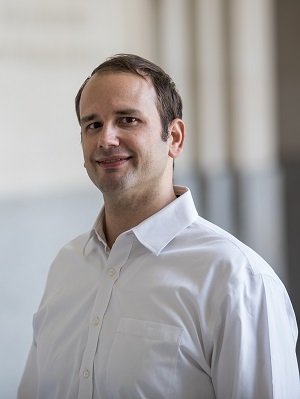
Jonathan Hunt, Title VIII Research Scholar, Kennan Institute
From Cold War to Hot Peace: An American Ambassador in Putin’s Russia,
by Michael McFaul
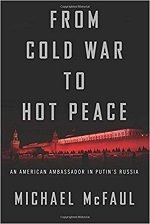
Michael McFaul flipped the script that the Kennan Institute’s namesake, U.S. Ambassador to the Soviet Union George Kennan, wrote. While Kennan went from the U.S. Department of State to Princeton University’s Institute of Advanced Study, McFaul travelled from the Department of Political Science at Stanford University to President Barack Obama’s National Security Council before arriving in Moscow as the U.S. Ambassador to the Russian Federation from 2012 to 2014. In his professional memoir, he reflects on his journey from activist to academic to ambassador, but the narrative reaches its climax with his advocacy of Secretary of State Hillary Clinton’s doomed "reset" policy with Russia, his travails as an innovative diplomat whose civil engagement made him a target following Vladimir Putin’s return to power in 2012, and his claims that Russian autocracy now challenges American democracy in the region and beyond.
Shadow Cold War: The Sino-Soviet Competition for the Third World, by Jeremy Scott Friedman
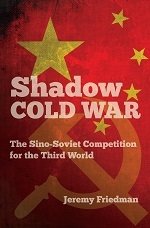
The “Cold War” still conjures memories of U.S.-Soviet confrontation over the fate of Berlin and an out-of-control nuclear arms race. Drawing on archival sources from numerous countries and in various languages, Jeremy Friedman tells the story of a parallel competition within the international socialist movement, between the Union of Soviet Socialist Republics and the People’s Republic of China. While the Sino-Soviet split has been documented in excruciating details in recent works by Lorenzo Lüthi, Li Danhui, Xia Yafeng, and Sergey Radchenko, Shadow Cold War focuses on the Third World to retrace how Mao’s vision of permanent revolution at home and abroad clashed with Soviet appeals for socialist development under the auspices of peaceful coexistence between the communist and capitalist worlds.
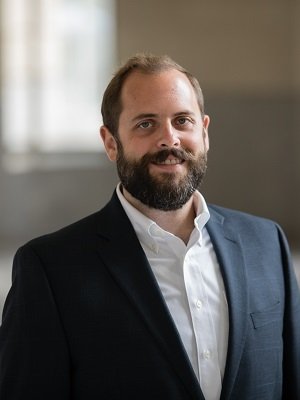
Tyler Kirk, Title VIII Research Scholar, Kennan Institute
Gulag Town, Company Town: Forced Labor and Its Legacy in Vorkuta,
by Alan Berenberg
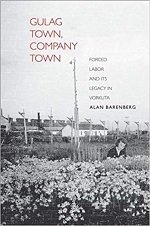
Alan Barenberg is an Associate Professor of History at Texas Tech University and a leading expert on the Gulag. His pioneering case study of one camp system-turned-mining town explores the institution of the Gulag, the people who worked there, and the impact of forced labor on the region over the longue durée. In this fascinating history of the Arctic city of Vorkuta, which stands in the extreme northeastern corner of European Russia, Barenberg illuminates the porousness of the border separating the camp and Soviet society at large, revealing that prisoners, camp staff, and civilians inhabited a space along a continuum of freedom. This powerfully argued work overturns Aleksandr Solzhenitsyn’s metaphor of the Gulag as an archipelago apart from the Soviet mainland, and it opens the door for further
research on political repression and its legacy in the places where it transpired.
Myth, Memory, Trauma: Rethinking the Stalinist Past in the Soviet Union, 1953-1970, by Polly Jones
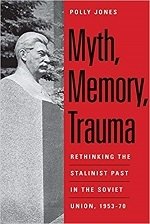
Polly Jones is an Associate Professor in Russian at University College at Oxford University and a leading expert on the politics of memory in the Soviet Union. Her brilliantly researched history describes the process of coming to terms with mass repression after Stalin’s death, and is an important contribution not only to the field of Soviet history, but also to memory studies. She illustrates the variety of approaches the Communist Party and the Soviet populace employed to de-Stalinize both the Party and Soviet society in the first fifteen years following the dictator’s death. Her work reveals that many forms of this memory work were also exhibited in the efforts of other post-communist and post-totalitarian regimes. Thus, Jones’s book not only provides insight into the politics of memory in the Soviet Union after Stalin, but also sheds light on issues of transitional justice, historical truth, and reconciliation, which remain of particular relevance globally.
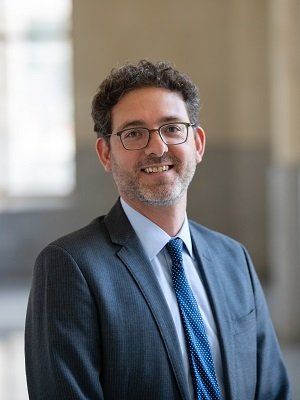
Alexander Bick, Wilson Center Fellow, Middle East Program
What Is Russia Up To in the Middle East?, by Dmitri Trenin
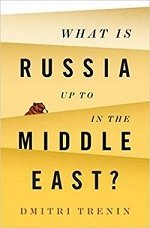
There is no better guide to Russia's dramatic return to the Middle East than this slim, crisply written book by the director of the Carnegie Moscow Center. From the ashes of Soviet failures in Egypt and Afghanistan, Trenin traces the emergence under Putin of an assertive but fundamentally pragmatic approach to the region built on expanding commercial ties and forging new relationships, including with traditional U.S. partners. In Syria, Putin's decision to intervene militarily in 2015 thwarted a U.S.-backed insurgency against Bashar al-Assad and offered Russia an opportunity to demonstrate its ability to fight a war distant from its borders, primarily with air power, at the head of a coalition of regional forces. Russia has no grand strategy for the Middle East, Trenin argues, but its success in Syria and its willingness to engage actors on all sides of the region's multiple rifts has enabled Moscow to break decades of U.S. political and military hegemony in the region and chart an independent global foreign policy.

Kennan Institute
After more than 50 years as a vital part of the Wilson Center legacy, the Kennan Institute has become an independent think tank. You can find the current website for the Kennan Institute at kennaninstitute.org. Please look for future announcements about partnership activities between the Wilson Center and the Kennan Institute at Wilson Center Press Room. The Kennan Institute is the premier US center for advanced research on Eurasia and the oldest and largest regional program at the Woodrow Wilson International Center for Scholars. The Kennan Institute is committed to improving American understanding of Russia, Ukraine, Central Asia, the South Caucasus, and the surrounding region through research and exchange. Read more

Explore More
Browse Insights & Analysis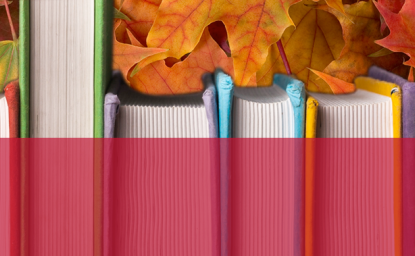
Kennan Institute Back-to-School Reading List: Fall 2018 Edition

Talking to the Dead to Heal the Living

Mustached Bards: Revisiting Soviet Ukrainian Pop Music
